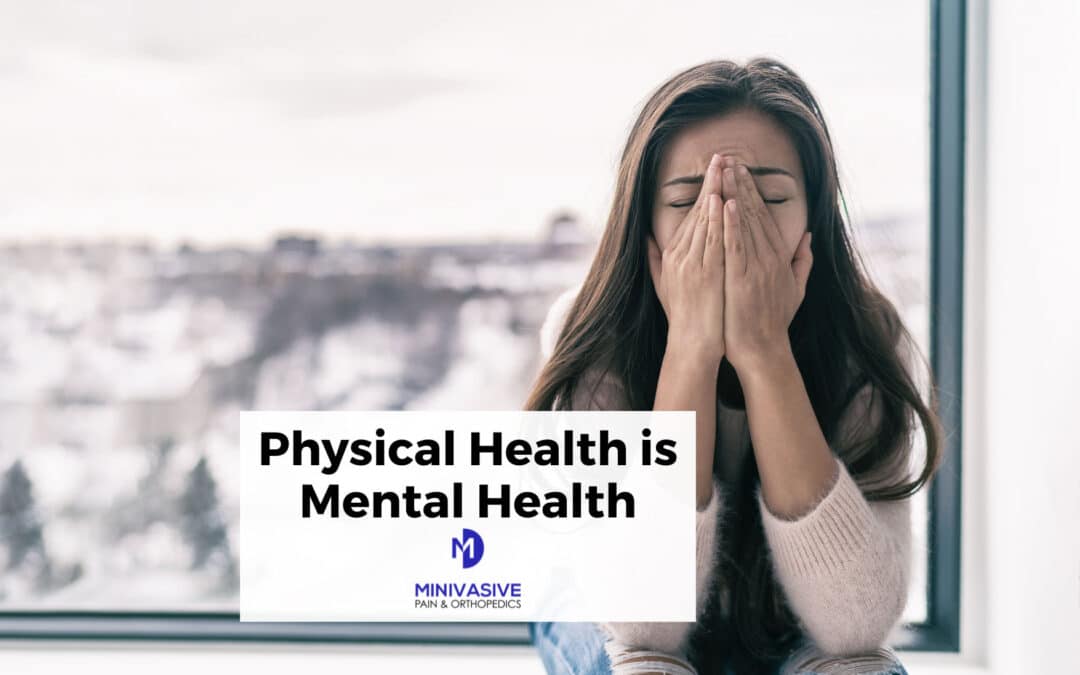Though many people typically think of the mind and body as two separate things, mental and physical health go hand-in-hand. For instance, good mental health can promote good physical wellness. On the other hand, poor mental health can negatively affect your physical health. Below, we break down just how closely related mental and physical health are to your overall well being.
How Mental Health Affects Your Physical Health
Being in a good mental state can keep you healthy and stave off physical ailments. It can reduce your risk of heart attack and stroke, whereas poor mental health can promote unhealthy behaviors or overall poor physical health.
For example, depression has been linked numerous times to chronic illnesses, including diabetes, asthma, cancer, cardiovascular disease, and arthritis. Furthermore, schizophrenia has also been linked to a higher risk of respiratory and heart disease.
Additionally, poor mental health can exacerbate underlying physical conditions or make dealing with a chronic illness more difficult. Depression and anxiety can significantly increase a patient’s perceived pain level, and the mortality rate for cancer is higher in patients with depression or other mental illnesses.
Plus, people dealing with mental health problems are more likely to struggle with a sleep disorder, such as insomnia or sleep apnea. Sleep apnea then can then lead to breathing problems which make it harder to stay asleep. This loss of sleep can then worsen the patient’s mental state. This catch-22 is why it’s so important to care for both your physical body and your brain, because while conditions like bipolar disorder, depression, or anxiety, may lead to sleep problems, sleep problems can also make existing mental health conditions worse.
Lastly, people with mental disorders are more likely to smoke than those without them. According to recent studies, among smokers, people with mental health conditions are more likely to smoke a greater number of cigarettes.
How Physical Health Affects Mental Health
Just like mental health affects your physical well being, your physical health affects your mental well being as well.
For example, due to the pain, limitation of movement, and impairment of the joints that characterizes arthritis, a patient’s ability to participate in the joys of their life is often diminished. Frustration and isolation, coupled with their inability to meet the demands of their life, may lead to development of mental health conditions like depression.
Just like arthritis can lead to mental health conditions, so too can chronic neck and back pain. Patients who reported recurring neck and back pain also had the highest odds of having major depression. According to mentalhealth.org, this same study also noted that “having a chronic painful condition made depressive symptoms last longer compared to those without painful conditions.”
Another chronic physical illness that can have negative effects on your physical health are chronic migraines. Increasing evidence suggests that suffering from migraines along with a mental disorder is associated with poorer health-related outcomes like disability, restriction of activities, and a higher reliance on mental health care services.
Additionally, those who have been diagnosed with cancer or recently suffered a heart attack or stroke, are more susceptible to feelings of hopelessness, low mood, and loss of interest.
Help Your Mental Health with Improved Physical Health at Minivasive Pain
At Minivasive Pain, our mission is to get you back to the joys of your life by treating the underlying causes of your pain. If you’re struggling with physical health problems due to your mental state, our experienced team of pain specialists can help you with a treatment plan that works for you. With several locations throughout the Greater Houston Area for your convenience, getting your life back on track is just a phone call away. To schedule an appointment, reach out to us at (346) 800-6001 now.

